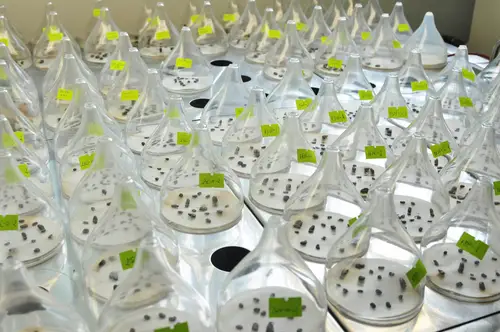Genetic Engineering Breakthroughs: Advancements in Biotechnology and Healthcare

Prepare to be amazed as we dive into the captivating world of genetic engineering and its groundbreaking achievements. In this post titled, “Genetic Engineering Breakthroughs: Advancements in Biotechnology and Healthcare,” we explore how scientists are manipulating genes like never before, leading to innovations that could revolutionize our health sector. Unravel the mysteries behind gene editing techniques such as CRISPR, delve into futuristic biotechnologies materializing personalized medicine therapy strategies and get a glimpse of potential cures for previously untreatable diseases thanks to advancements in Genomic Medicine. Genetic engineering definition refers to the techniques and procedures used to modify and manipulate organisms through the processes of heredity and reproduction.
Genetic engineering is no longer sci-fi but a tangible reality with transformative effects on healthcare worldwide. So strap yourself in for an enlightening journey through laboratories around the globe where science fiction meets medical fact! Whether you’re already fascinated by biotechnology or just curious about future healthcare possibilities, join us on this exciting exploration of cutting-edge developments at genetics’ frontiers.
Decoding the Human Genome: A Milestone in Genetic Engineering
The completion of the Human Genome Project marked a significant advancement in genetic engineering, revolutionizing our understanding of human biology and paving the way for groundbreaking discoveries in biotechnology and healthcare. By mapping out the entire sequence of DNA that makes up a human being, scientists have gained valuable insights into the genetic basis of diseases, identifying potential treatments and personalized medicine options. This monumental achievement has also opened up new possibilities for gene editing and manipulation, allowing for targeted interventions to correct genetic defects and potentially eradicate hereditary illnesses. The era of precision medicine has dawned, offering hope for improved diagnostics, therapeutics, and ultimately, a healthier future for humanity.
CRISPR-Cas9: Revolutionizing Gene Editing Techniques
The discovery of CRISPR-Cas9 has fundamentally transformed the landscape of genetic engineering. This revolutionary technology allows scientists to precisely edit the DNA of living organisms with unprecedented accuracy and efficiency. By utilizing a guide RNA to target specific sequences in the genome and a Cas9 protein to make the edits, researchers have been able to modify genes in a wide range of organisms, from plants to animals to even humans. The potential applications of CRISPR-Cas9 are vast, ranging from correcting genetic mutations that cause disease to creating genetically modified crops with increased resistance to pests and environmental stresses. This breakthrough has opened up new possibilities for healthcare, agriculture, and biotechnology, making it one of the most exciting advancements in recent years.
Personalized Medicine through Genetic Engineering: Promises and Challenges
Personalized medicine through genomics holds great promise in revolutionizing healthcare by tailoring treatments to individuals based on their genetic makeup. By analyzing an individual’s unique genetic markers, doctors can prescribe medications that are more likely to be effective and have fewer side effects. This approach can lead to more successful outcomes for patients with complex conditions, such as cancer and rare diseases. However, there are challenges to implementing personalized medicine at scale, such as the cost of genetic testing and the need for robust data privacy protections. As the field of genomics continues to advance, addressing these challenges will be critical in realizing the full potential of personalized medicine in improving patient outcomes.
Genetically Modified Organisms (GMOs) and Agriculture’s Future
Genetically Modified Organisms (GMOs) have become a major point of contention in the agriculture industry, with proponents arguing for their potential to increase crop yields and resilience to pests and diseases, while opponents raise concerns about their long-term impact on health and the environment. Despite the controversy, GMOs are likely to play a significant role in the future of agriculture. Advances in genetic engineering have enabled scientists to develop crops with enhanced nutritional content, improved drought and pest resistance, and even the ability to grow in harsh environments. With a growing global population and increasing pressures on food production, GMOs could provide a crucial solution to help meet the challenges of feeding the world sustainably.
Ethical Considerations of Genetic Engineering Innovations in Healthcare
The rapid advancements in genetic engineering and biotechnology have raised important ethical considerations in the field of healthcare. One of the primary concerns is the potential misuse of genetic information for discrimination or stigmatization. Additionally, the question of informed consent and privacy rights is paramount when it comes to genetic testing and manipulation. In a society where access to healthcare services can be unequal, ensuring fair distribution and affordability of biotechnological innovations is another ethical challenge. Moreover, there are concerns about the implications of altering natural genetic traits and introducing artificial modifications that may have unforeseen consequences. As the field continues to evolve, it is crucial to address these ethical considerations to ensure that biotechnological innovations in healthcare are used responsibly and ethically.





